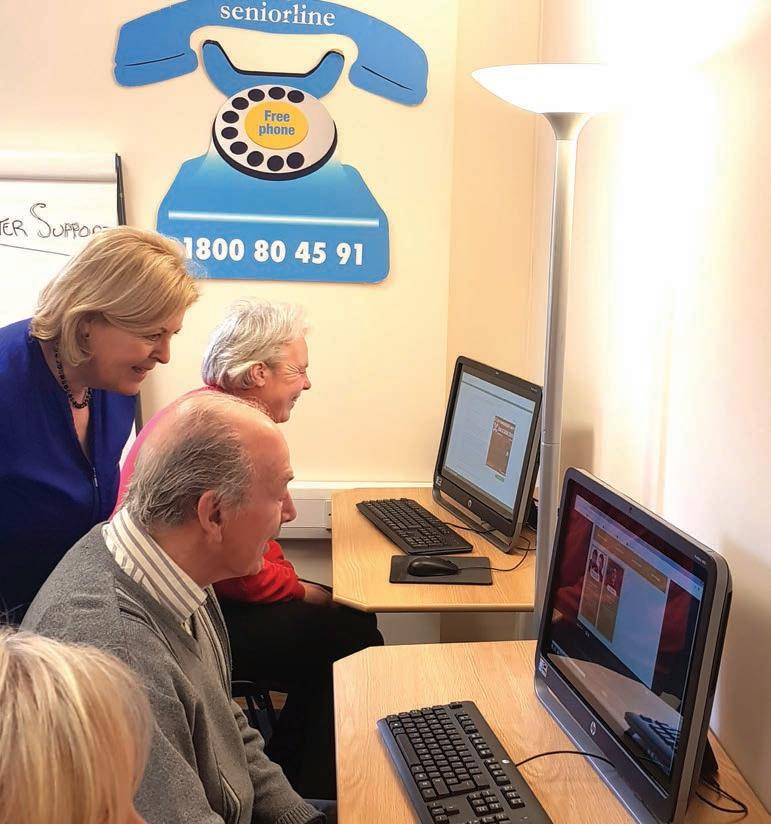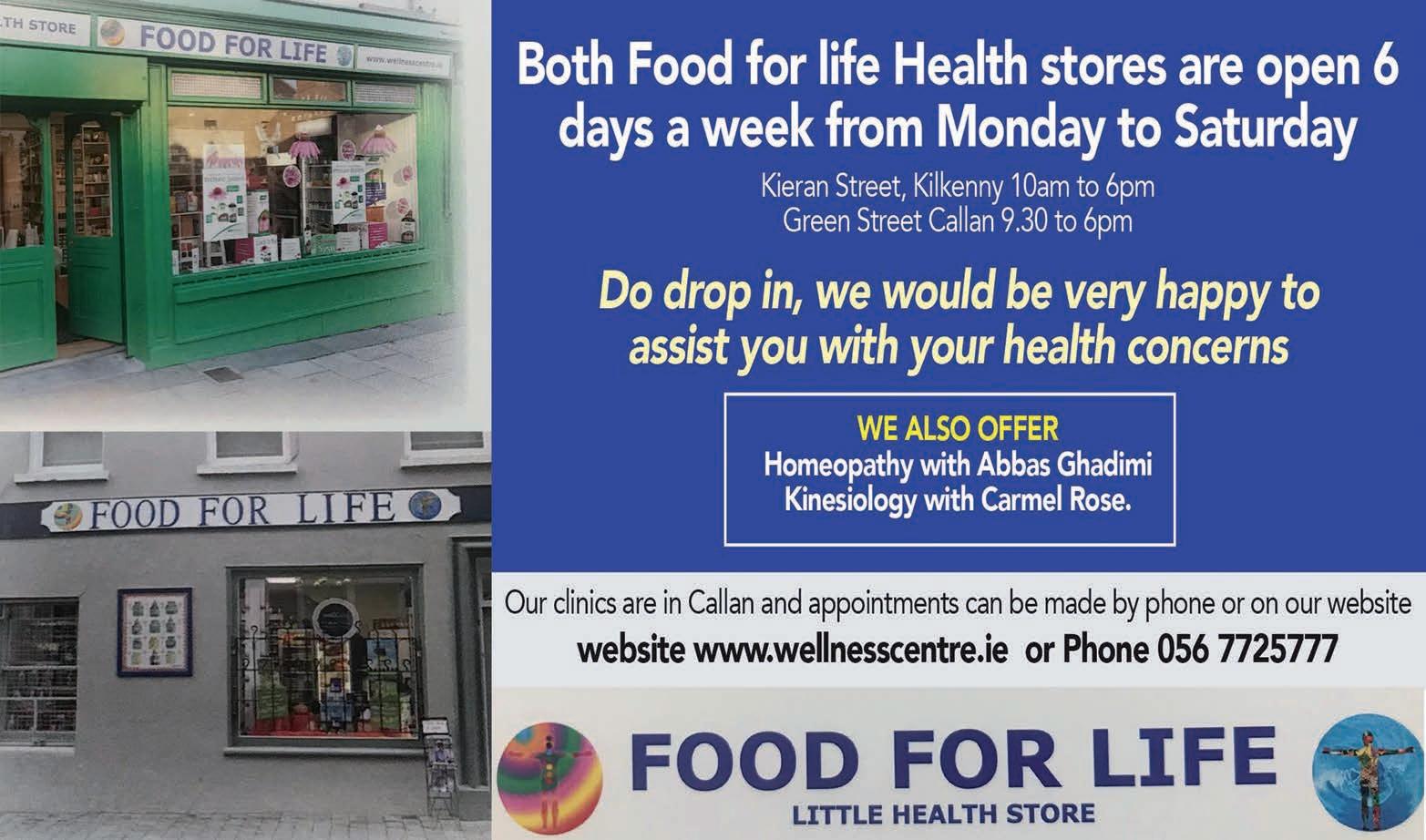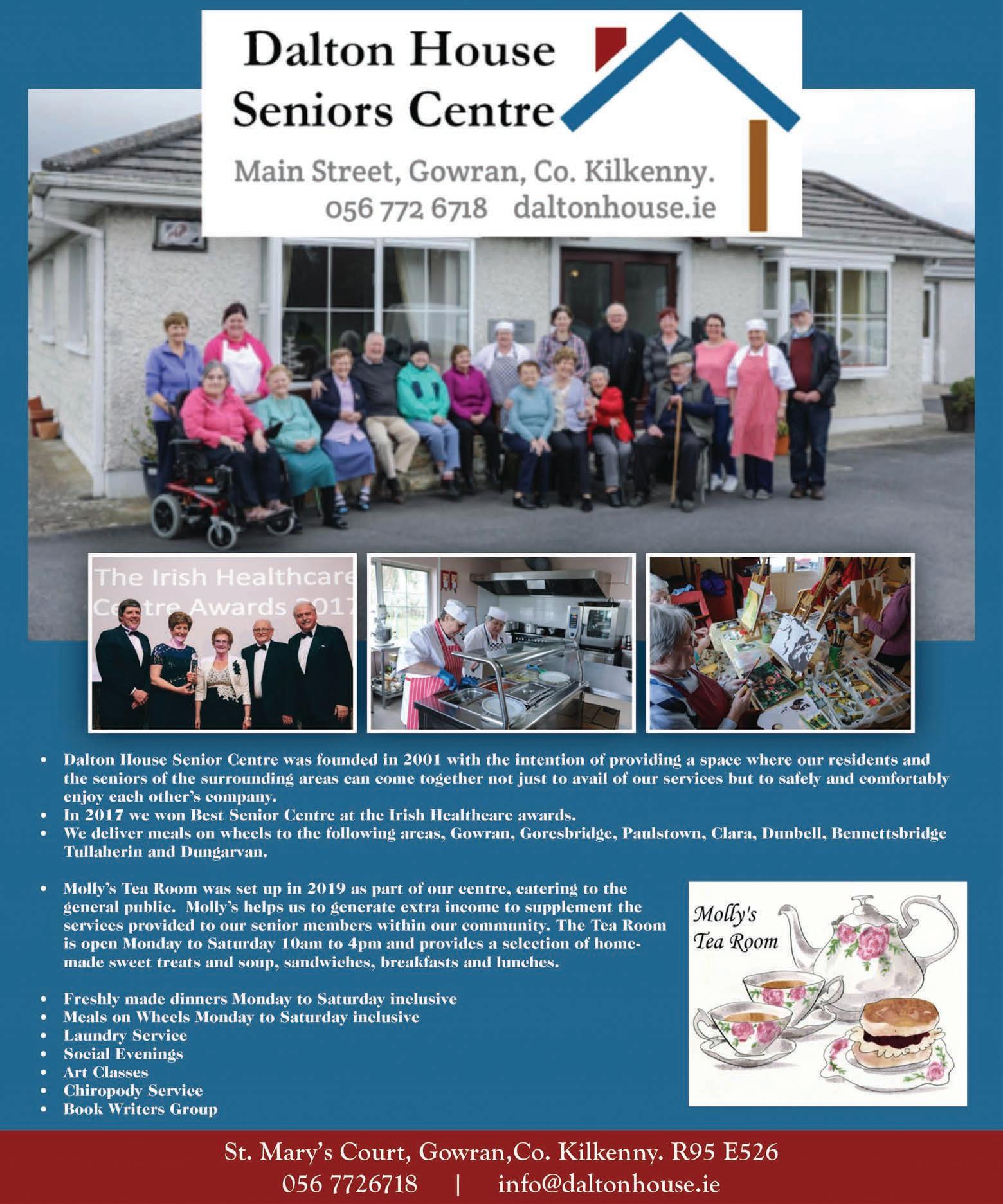
16 minute read
Positive Ageing Week
We have all heard it said ‘You are only as old as you feel’ erefore it is important that we all keep ourselves active and engaged in society on a regular basis. Otherwise we will get hit by that terrible word Ageism.
Ageism refers to how we think (stereotypes), feel (prejudice) and act (discrimination) towards others or ourselves based on age. Ageism refers to the harm done through how we think (stereotypes), how we feel (prejudice) and how we act (discrimination) towards others or ourselves based on age. Ageism can be conscious or unconscious.
Advertisement
Ageism occurs when people interact with one another (interpersonal), when organisations interact with individuals (institutional) and when people direct ageism towards themselves (selfdirected).
How many times have you told someone “I am retired now” and they will reply “ Sorry to hear that” Retirement is the time in your life when your work has been done, your Contribution to society measured and now your pension fund (Hopefully) will allow you to enjoy your senior years. Now while on this subject, Which term describes our cohort correctly ‘Older Persons Council’ or ‘Seniors Forum/Council’ When you close your eyes what type of person do you see? ey both describe pictures that are completely di erent. My opinion ‘Seniors forum’
Ageism is one of the most pervasive prejudices across human society. Ageism characterises and divides people in ways which are unjust, and which lead to disadvantage and the undermining of human rights.
Age is one of the rst things we notice about other people. Ageism arises when age is used to categorize and divide people in ways that lead to harm, disadvantage and injustice and erode solidarity across generations.
Ageism damages our health and well-being and is a major barrier to enacting e ective policies and taking action on healthy ageing, as recognized by World Health Organization (WHO) Member States in the Global strategy and action plan on ageing and health and through the Decade of Healthy Ageing: 2021–2030. In response, WHO was asked to start, with partners, a global campaign to combat ageism. e Global report on ageism was developed for the campaign by WHO, the O ce of the High Commissioner of Human Rights, the United Nations (UN) Department of Economic and Social A airs and the United Nations Population Fund.
Age equality is the opposite of ageism. Age equality involves making a conscious, active e ort to overcome stereotypes, prejudice and discrimination based on age, in order to remove all age-related barriers to equality of outcome for older people.
Age equality promotes policies and laws that address discrimination and inequality based on age.
Twilight’s educational activities, including self-directed learning, to enhance understanding and empathy about ageing, promotes Age equality and to transmit knowledge and skills to overcome ageism
Twilight’s intergenerational activities promotes Age equality, where people of all ages interact, to contribute to mutual understanding and cooperation between people of di erent ages.
ISB Mobility Caring for your mobility since 1999
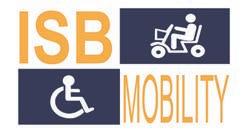
Having been Established in Ireland since 1999, we are recognized as a market leader with our vast knowledge in the Disability Access Market. One of our main aims has always been to carry out adaptations within your home as quickly and ef ciently as possible, ensuring the minimum inconvenience to you and your family. As a company we have accomplished many mobility solutions over the last 23 years and we want you to know that we are always looking for new innovative ways to improve our services and we are constantly adding to our product range as a result.
Our sta are specially trained to guide you through from the very rst phone call to completion. Our o ce sta are very friendly and happy to help at all times.
We specialise in the supply and installation of all types of disability products for your home, and pride ourselves in only using the best products available. We o er a one stop shop when it comes to Home Mobility and our highly trained technicians and building sta always combine to give you the perfect job. We are a Vendor to the HSE for over 10 years and we do grant work with county councils all over Ireland.
ISB Mobility have a vast experience and a deep knowledge of the stairlift market, and through this experience we have learned to appreciate that every customer has their own individual needs and requirements. Our stairlifts have a wide range of features which means that they can be adapted to meet the most challenging of installations. Having such a wide range of features available also allows us to o er a stairlift solution to match almost any budget. Our stairlifts are very competitively priced.
ISB Mobility are committed to giving you, our customer the best attention at all times. If you are buying a Stairlift, rough Floor Home Lift, Mobility Scooter or other mobility aids, we are here to help.
Come on down and visit our showroom to view a variety of Stairlifts, Mobility Scooters and Wheelchairs. Alternatively, shop online at irishstairlifts.ie.
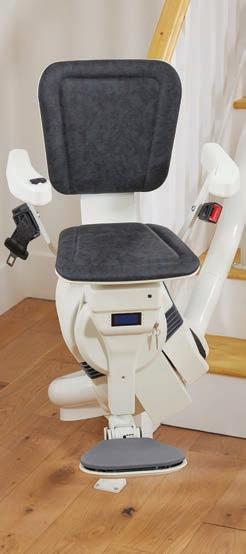

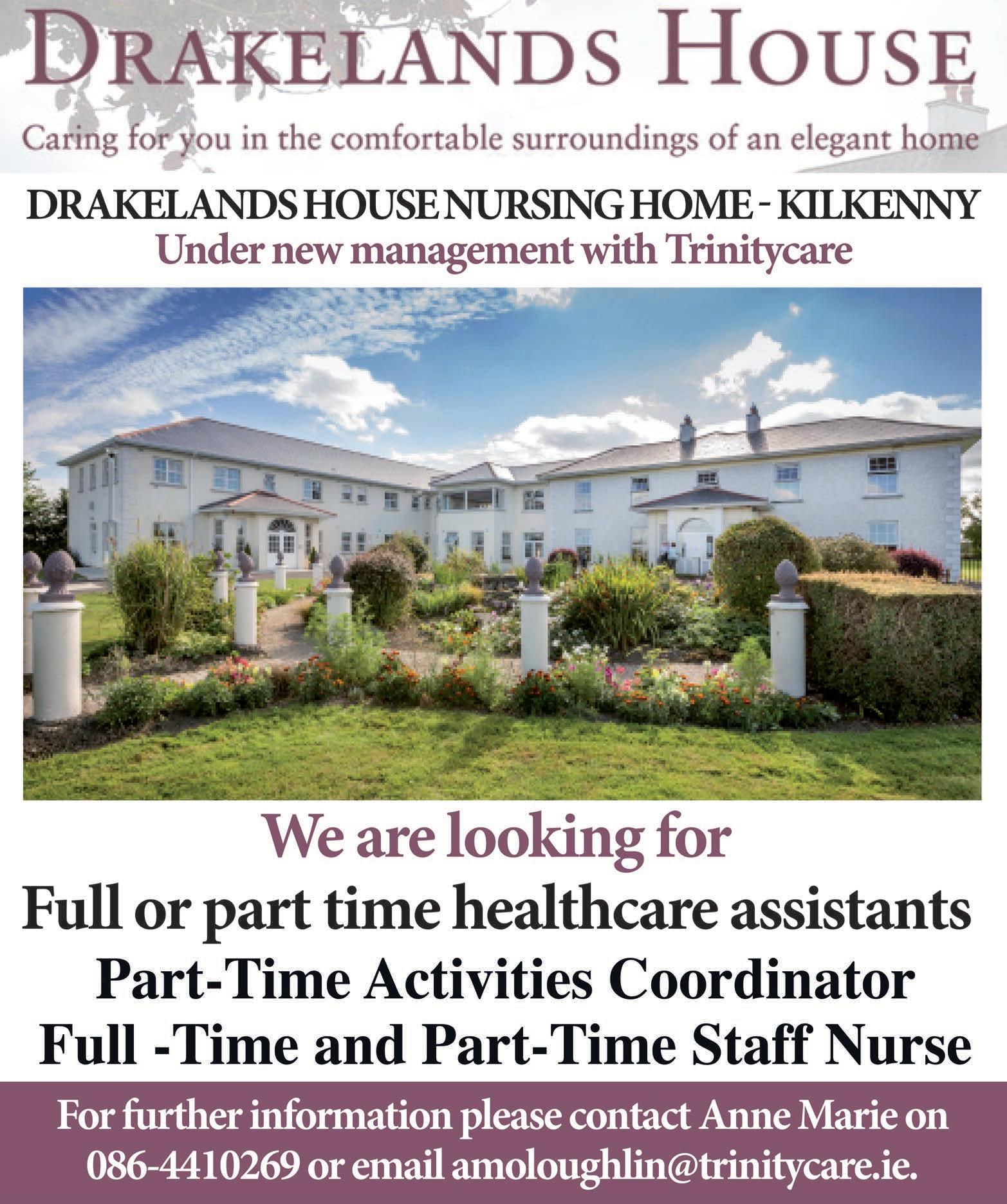


5 Science-backed benefits of strength training for every athlete at every age
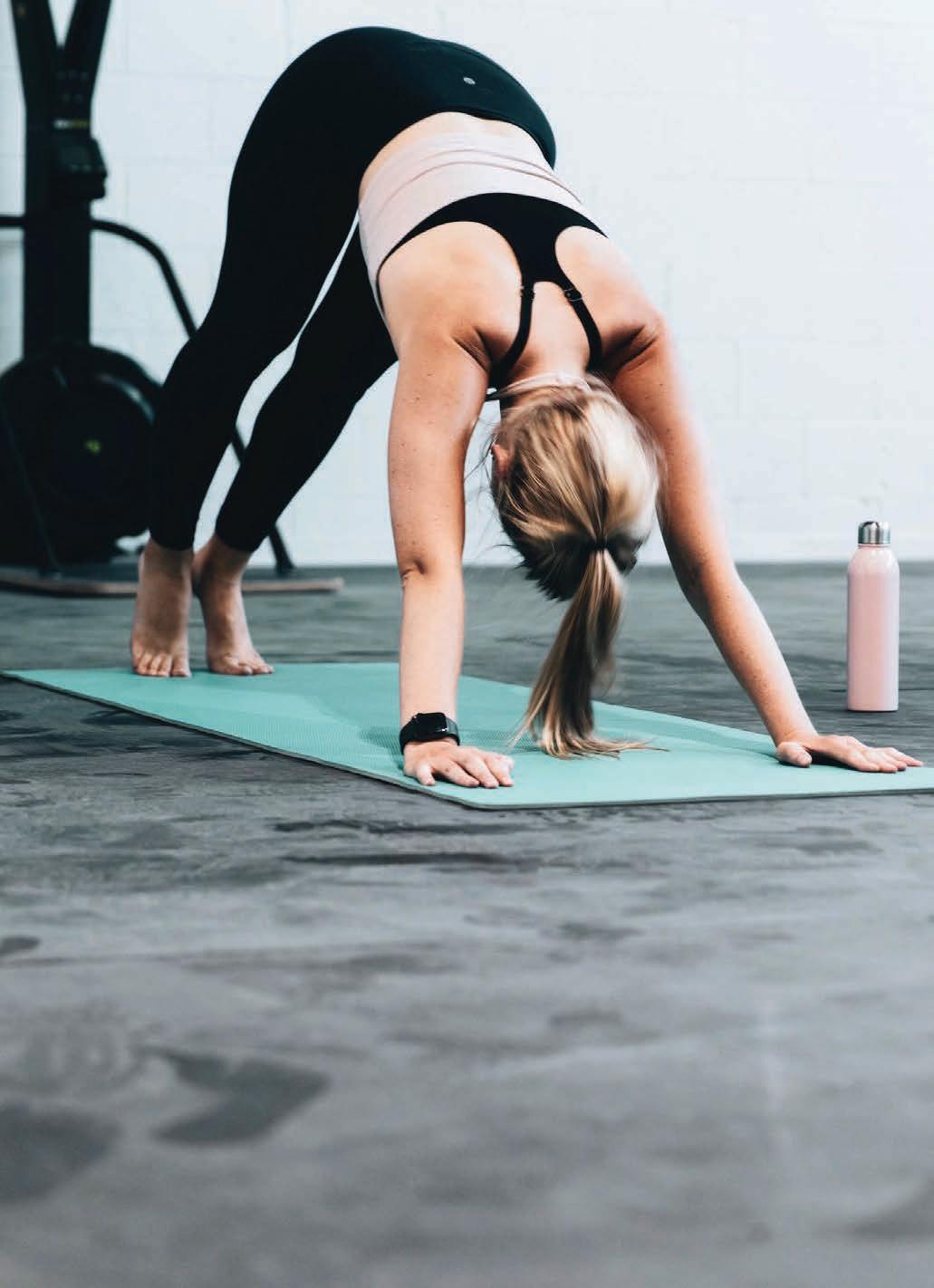
EOIN EVERARD
With just one or two sessions per week, you can live a longer, more ful lling life thanks to strength or Pilates training.
In order to live longer, healthier lives free from illness and damage, people are always looking for ways to slow down the aging process. According to experts, strength training is the key to eternal youth. is is supported by recent studies. Here are ve advantages of strength training proven by science that will motivate you to incorporate a few lifting sessions into your normal schedule.
1. Extend your life (literally).
Regardless of your age or other health-related circumstances, strength training can extend your life. According to Hamilton Rochel, PhD, Head of the Applied Physiology and Nutrition Research Group at the University of So Paulo, muscle strength is an independent and powerful predictor of all-cause mortality, meaning that higher overall strength may result in a longer life regardless of any other conditions you may have. Higher levels of strength are associated with a 14% decreased risk of death from all causes, according to a meta-analysis of almost two million healthy people published in the Archives of Physical Medicine and Rehabilitation.
It all boils down to how much you exercise to make the connection between strength and lifespan. According to a review in the Journal of the American College of Cardiology, being physically inactive can raise your chance of dying young from a chronic illness by 20 to 30 percent. Low levels of strength also indicate that your everyday movement is probably insu cient or that your exercise is restricted, according to Rochel.
But you’ll appreciate those extra years even more if you keep your strength up with regular exercise. ink about how frequently you stand up and sit down, walk to di erent locations, and climb stairs each day. Life is easier when movement is simple. According to a sizable study that was published in the Cochrane Library, strength training enhances both general function and your capacity to carry out daily tasks like bringing groceries inside the house.
According to Stuart Phillips, PhD, professor of kinesiology and specialist in muscular physiology, “at some time in your life, crucial daily activities will depend on how strong you are.” Make an investment in strengthening yourself right now to fend o the impacts of aging.
2. Delay Signs of aging
When it comes to aging, both physical and mental changes occur throughout time. Studies have found that after the age of 30, muscle mass might decrease by 10% annually, and some have found that cognitive ability also deteriorates with age.
However, you can slow down these changes by beginning strength training or doing muscular work like Pilates as soon as you can so you have a higher set point as muscle mass diminishes with age. Full-body strength or Pilates training should be a part of your program at least one to two days a week to preserve muscular mass, strength, and power as well as cognitive function and memory, allowing you to think more clearly for longer.
Additionally, starting is never too late. According to the American College of Sports Medicine, older persons, de ned as those 65 years of age or older, can experience strength gains of up to 100% after engaging in regular strength training.
3. Control your weight and body composition.
Although your health is more important than the number on the scale, you may manage your weight and shed fat when you incorporate strength or Pilates training into your regimen. Strength training appears to be crucial to your program if you’re attempting to maintain your weight, according to a six-year study involving over 11,000 participants. Participants who engaged in strength training experienced a 30% reduction in their risk of becoming obese.
When trying to shed fat, strength training is also essential. According to Schoenfeld, if you don’t, you’ll actually wind up losing muscle mass, which is bad for your appearance, functionality, or health. An even greater bene t: A recent meta-analysis revealed increasing muscle mass aids in decreasing visceral fat, the body fat that accumulates around your midsection and is associated with chronic diseases like cardiovascular disease, type 2 diabetes, and metabolic disorders.
4. Decrease your chronic disease risk
When considering general health, cardio is frequently praised, but Phillips argues that strength training also has special advantages that need consideration.
Strength training is recommended when trying to enhance heart health, according to recent studies. Incorporating both cardio and strength exercise into your regimen can reduce your chance of developing cardiovascular disorders like heart attacks or strokes, according to a recent study. Another study discovered that only one strength training session per week could reduce the risk of cardiovascular disease by 17%.
Strength training can help lower levels of chronic in ammation, which is connected to cardiovascular disease, metabolic syndrome, and type 2 diabetes when your body is in a low-level ght or ight state. Prolonged in ammation can hinder new muscle growth and recuperation, which can lead to the breakdown of muscle tissue. But according to research, strength training can prevent this muscle breakdown and further lower your risk of type 2 diabetes by helping you to develop lean muscle.
5. Reduce risk of injury
You’ll have more protection against both small and big injuries, according to studies, if you strengthen the muscles and tendons around your joints. Consider falls as an example. Falls, or even the fear of falling, can have an impact on a person’s long-term independence. Falls are one of the most prevalent injuries among older persons.
Strength and Pilates exercise can lower your chance of falling by enhancing your balance, exibility, and coordination. If you’re lifting, you have a lower chance of breaking a bone even if you fall. When working the muscular system with squats and other muscles it also works on improving bone strength and preventing osteoporosis. According to a review article written for Rehabilitation, it also works well for easing the annoying symptoms of osteoarthritis (think: sti ness and discomfort). e basic line is that strength training can extend your life, keep you at a healthy weight, protect you from illness and injury, and ultimately improve your general health and vigour. Additionally, starting is never too late. e health of every athlete, regardless of age, can be improved with just two to three workouts each week, according to studies and professional opinion. Anyone may easily experience the advantages of strength training straight at home. One key thing is making sure you are doing exercises correctly and safely. e BackAware Belt is the rst ever technology that gives you feedback on your back position. is allows you to make sure you are doing exercises sagely and target the muscles you are trying to target. To learn more about the BackAware belt visit www.backawarebelt.com .
We are starting back with Pilates this September. If you exercise (walk or run) at least 3 times per week, then this could be a great option for you. Visit www.everardpilates. com/sportfreetrial to see if you qualify.
Troys Court – For independent living

TROY’S Court consists of 20 independent living units, providing accommodation for persons, who are independent or have low dependency care needs. In addition to the units, the complex has a day care centre, communal dining room, kitchen, laundrette, assisted bathrooms, toilets, a treatment room and an oratory. The emphasis at Troy’s Court is on independent living, in a safe and secure communal environment. Support services to residents comprise of a daily 4 course meal, laundry service including ironing, assistance with light housekeeping, daily collection of refuse and recycling, all included in the weekly rental charge. A day centre for the elderly of the Parish operates Monday to Thursday each week, with a nurse and care-assistant in attendance. A social gathering of parishioners, who come to enjoy activities such as bingo, cards, music, art & crafts and exercise classes. A 4 course meal is also provided. In addition, with the help of volunteer drivers, a home dinner delivery service is available for a small fee, 7 days per week to parishioners of the surrounding areas. The Priests of the Parish celebrate weekly mass every Tuesday in St Canice’s Parish Homes. Admission to Troy’s Court is by way of application and a waiting list applies. The main source of funding is the rental payment from residents, a small contribution from the Health Service Executive and fees collected from day care & home dinner delivery service. Small fund raising activities such as Church Gate Collections, street collection and the goodwill of parishioners are also most important. Troy’s Court provides employment for a 11 part-time staff. The Kilkenny Carers Support Services, under the auspices of the Department of Social Protection Community Employment Scheme (FAS), provide further personnel. Volunteers are always welcome to help out at Troy’s Court. The Manager Ms Frances Gilligan reports to the Board of Directors, who voluntarily give of their services.

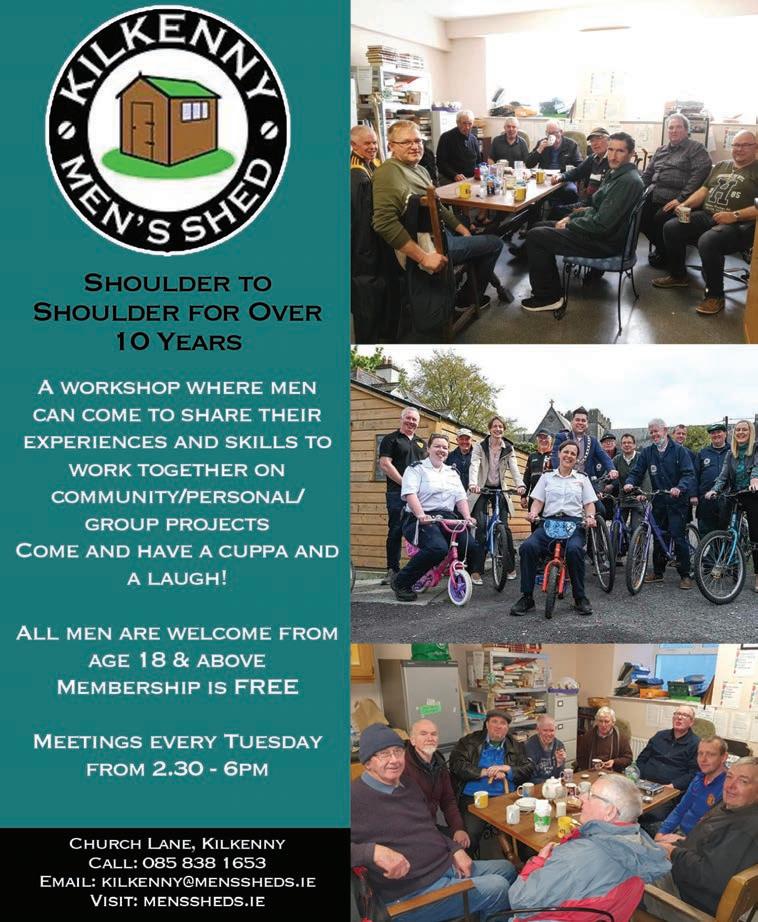

Years ago in school, we were asked to pray for’ the old and the lonely’, a seamless phrase as though all older people were lonely, and the state of loneliness was experienced solely by this age group. Today we know this is not true. People of all ages can experience loneliness, and many older people are living their best lives now.
So while 60 may not be the new 40, consistent surveys show that many septuagenarians report a sense of happiness and ful lment in their day. Never before have we lived so hopefully or so long. Better housing and health care means that as a society we have been successful in adding years to the life. Now we need to look at adding life to the years.
Positive Ageing Week is part of this movement. It is a Week to celebrate the achievements of older people and to showcase their positive contribution in communities throughout Ireland. Older people are traditionally the social glue binding the generations. is cohort is involved as parents and grandparents, locally as parishioners, friends and neighbours, and more widely as social activists and volunteers.
Ireland has one of the highest rates of volunteering in the EU. 28.4% of adults in Ireland volunteer with 65% of these over the age of 45, according to the latest CSO gures. Evidence suggests volunteering also bene ts older people contributing to better physical and mental wellbeing and quality of life. e over-70s volunteer for a wide range of organisations including sport and social clubs, parish groups, self-help, charity and community groups. Older people also volunteer within their families. TILDA, e Irish Longitudinal Study on Ageing found that 132,200 over-70s give care to spouses, relations, friends and neighbours while 131,200 take care of grandchildren regularly or daily. 128, 000 give nancial assistance to adult children. e work of Senior Line, Ireland’s national con dential service for older people, is delivered solely by trained older volunteers. e service received over 22,000 calls last year from older people throughout Ireland. Its peer aspect, older people listening and supporting other older people, is particularly appreciated. ‘I know when I phone I will be talking to someone who understands because they are my own generation’, says Kathleen, a frequent caller.
Conor McNulty, 68 is a SeniorLine volunteer. ‘After retiring, I wanted to give something back to the communities around Ireland’ he said. ‘I have learnt a lot about myself by listening to callers who just want to feel they are not alone. I always try to put myself in their shoes and listen carefully to what they are saying and how they see their situation. I enjoy when we are thanked for being there, and feel I have helped someone feel better about their day’. Positive Ageing Week also gives us the opportunity to challenge any ageist attitudes we hold. Ageism is the negative stereotyping of older people, somehow scapegoating them for being old. It can show itself in language and behaviour and can assign older people less value than others. Ageism is often unconscious, and becomes damaging when translated into discriminatory practices at local or national level. e unintended ageism demonstrated in the government response to Covid-19 has been highlighted in ‘Telling it like it is – a report from Age Alliance, a grouping of major age sector organisations. It found the e ects for many older people in Covid were loss of con dence, loneliness, anxiety and depression. Many suffered a skills reduction if driving or travelling away from home. ere are many ways to combat ageism. We can include older people in decision-making, encourage more contact between the generations, watch our ageist language and look at more exible retirement strategies. A degree in self-interest could combat ageism. We need to avoid a self-ful lling prophecy that we create the older age that we fear. e more we support older people to stay in the mainstream of life rather than being pushed to the margins the better older age will be for all of us. SeniorLine, Ireland’s national con dential helpline Freephone 1800 804 591, open 10am-10pm 365 days a year.


Adding life to the years
